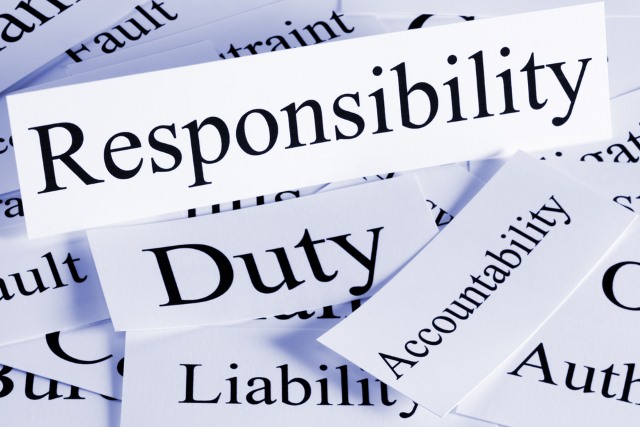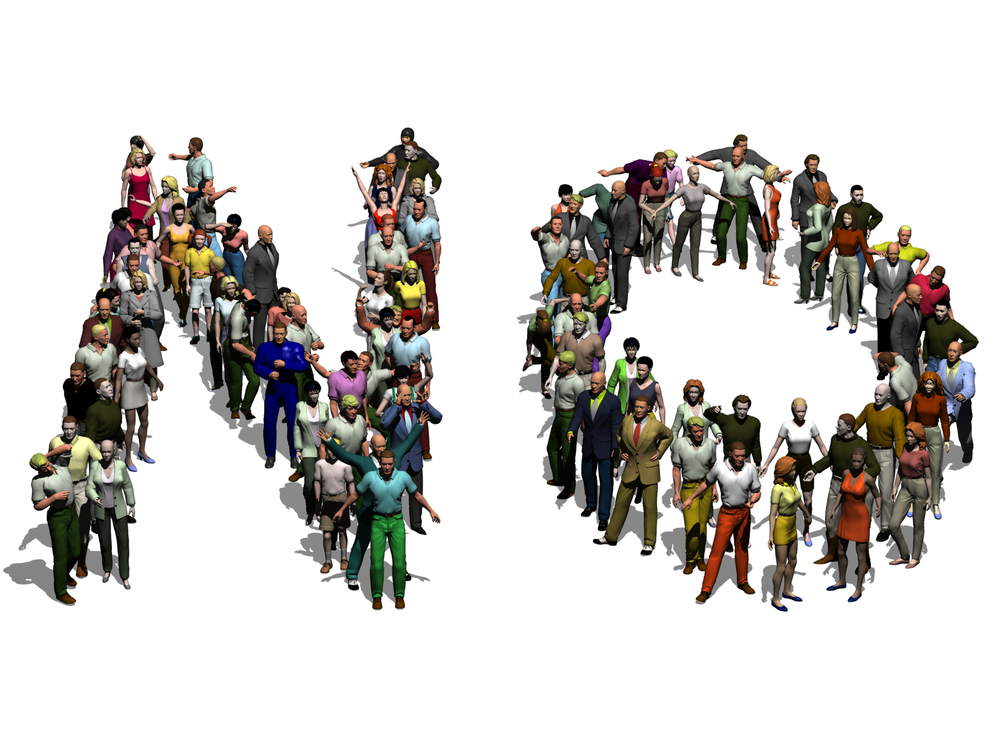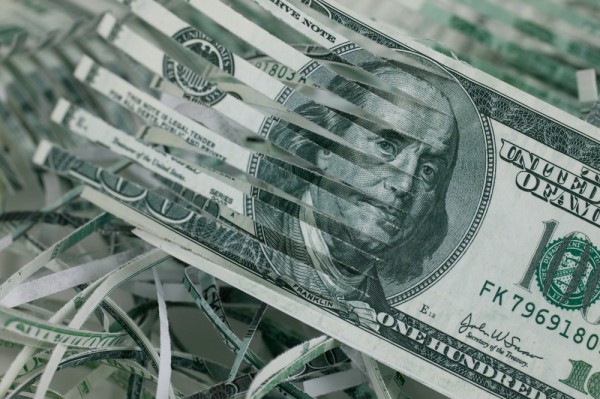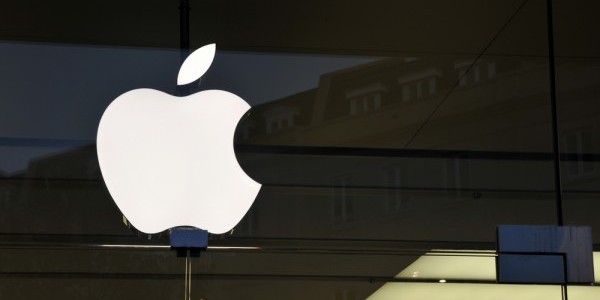
Responsible use of tech is seen as a pressing business need
According to a new report, 73 percent of business leaders think responsible technology use will become as important as business or financial considerations when making tech decisions.
The study from Thoughtworks is based on a survey of 550 senior executives from nine countries around the world. When asked about the tangible business benefits of adopting responsible technology, the top response was better customer acquisition/retention (47 percent).

Boycott the Internet!
What a strange coincidence: Earlier this week, Smithsonian Channel's "Air Disasters" broadcast an episode about the downing of Korean Airlines flight 007 in 1983 -- at the height of the Cold War. Turns out the Soviet Union recovered the black boxes and hid them for a decade. I'm old enough to remember the Cold War and what the United States fought against. I told my wife: "Sometimes I really wish the Soviet empire still existed, so Americans had a measure for government bad behavior". A day later, the Guardian and Washington Post broke what likely is the biggest story about U.S. surveillance since the Watergate break in. The activity stinks of behavior opposed decades ago.
The National Security Agency spies on you, in secret, something many people suspected. The NSA monitors Internet servers, without warrants. In a Google+ comment today, Joe Betsill brilliantly and succinctly captures what changed: "There's a difference between suspicion and evidence". He links to an Electronic Frontier Foundation "Timeline to NSA domestic spying". I strongly suggest reading the EFF material, in addition to the Guardian and Washington Post investigative reports -- so that you are informed.

Android outdated? Blame Google, not cellular carriers
You can still buy phones running Android 2.3 (Gingerbread), even though Google released the last distribution, version 2.3.7, in September, 2011. In the meantime, numerous security flaws have been discovered in Gingerbread and users are vulnerable to them.
For this, the ACLU blames AT&T, Sprint, T-Mobile and Verizon Wireless. The logic in their plea to the FTC is so shoddy that I have to suspect an ulterior motive. In whose interests is the ACLU operating here?

Did CNET do right by DISH?
We don't often write about other news sites, but the drama unfolding at CNET today is simply too hard to ignore. Your opinion means something, and I ask for it. Or, keeping with Betteridge's law of headlines, you can answer "yes" or "no".
During last week's Consumer Electronics Show, CNET editors voted DISH Hopper with Sling best of show. But parent company CBS stepped in and nixed the choice, citing on-going litigation. Editors disqualified the device, but not indicating that it had actually won. Today, The Verge editor-in-chief Joshua Topolsky broke the story, and long-time CNET reporter Greg Sandoval resigned in protest. Since, CNET reviews editor-in-chief Lindsey Turrentine posted "CNET's story".

Judge Koh should vacate the Apple-Samsung verdict
Jurisprudence demands that US District Judge Lucy Koh right a terrible miscarriage of justice occurring in her courtroom. The Apple-Samsung patent dispute is nothing but a mock trial. The jury ignored key instructions, failed to complete a crucial checklist, made egregious errors on the final verdict form and reached a verdict after 21 hours of deliberations. The foreman misunderstood one of the concepts fundamental to the case -- prior art -- leading the jury astray. Then there is Judge Koh, who prevented Samsung from presenting key evidence or witnesses that could have made its defense and case against Apple more credible.
Apple claims that Samsung copying iOS device designs and patents causes irreparable harm. But the greater injustice is against the South Korean manufacturer, which is branded a copycat and thief -- all while the victim of terrible misreporting by analysts, bloggers, journalists and other writers. Samsung suffers irreparable harm here, not Apple. Judge Koh let this travesty occur on her watch. She should be ashamed and do what this malfeasance demands: Set aside the verdict. Best scenario: She should deny all claims by both parties, and let them sort it all out on appeal. Acceptable: Order a new trial. She let the case get out of control. Time is long past to reel it in.

Tony Scott: Apple flogs old movies and profits from a man’s suicide
When film director Tony Scott committed suicide, Apple quickly put up a tribute to him on the iTunes store. Except the page is less of a tribute and more of a shop window. Underneath a picture of Scott, and a brief biography, are links to all of his movies available to rent or buy from Apple. It doesn’t mention his death, at all, just lumps all of his films together into a collection that’s prominently listed on the front Films screen.
When I first encountered the so-called tribute page, I was a little dismayed. When someone dies, the proper etiquette is to mourn them, and to reflect on their lives and on their achievements. It isn’t, generally, to try and make a quick buck from their passing. But that’s exactly what Apple has done here -- and it's not the first time.

Making a bad joke on Twitter shouldn’t be a criminal offense
I like to make jokes. In fact so deep is my love of comedy I’ve co-authored a couple of non-fiction humor books. I can see the funny side in most things, but I’m also able to self-censor. That is, if I think up a joke that someone may find genuinely offensive or upsetting, I will choose very carefully whether or not to say it or post it. I’ve learned over the years to think before speaking, although that doesn’t mean I’ll always do it.
Twitter is full of would-be comedians posting jokes and irreverent observations. Sometimes they’ll score a hit, other times a miss. When a joke occurs, they’ll rush to post it in an effort to impress their peers, and score retweets. The speed that Twitter operates at means people often don’t think before they post. When someone tweets something in bad taste, followers will pick up on it, and the sheer weight of disapproval will frequently lead to the removal of the offending missive and a swift apology.

If there was a Yahoo Group called LIBOR...
LIBOR, the London InterBank Offered Rate, has been in the news lately as heads begin to roll in London and soon New York now that it’s clear LIBOR was manipulated by big banks, affecting the value of hundreds of trillions worth of financial instruments. This is a complex topic and it will be awhile -- perhaps years -- before it is clear how or even if you and I were damaged by these shenanigans, but everyone seems to agree that it can’t be allowed to happen again. But how? To make this happen I think we need a new understanding of what “transparency” means in financial transactions in the 21st century.
Transparency is supposed to mean that all parties in a financial transaction share the same information so nobody is blindsided. In practical terms transparency has usually meant something less: 1) that all parties can have the same information if they are willing to do the work to find it, and; 2) that all parties are held legally responsible as though they had the appropriate information. These latter statements mean generally that true transparency isn’t viewed as practical so all parties are on their honor to act transparently.

Should you boycott Apple?
What's right for me might not be for you.
On July 4th, I declared independence from Apple, weeks after pledging to boycott the company's products. The independence story is among my post popular posts (based on pageviews), and it's most-Liked and most-commented. I inadvertently tapped into some surprisingly strong emotions about the fruit-logo company and unmeaningly joined the boycott Apple movement. Looks like I'm not the only person mad about recent patent bullying, although other boycotters add more complaints.

IT isn't powerless against the death squads of corporate America
About 10 weeks ago, I wrote a six-part series of columns on troubles at IBM that was read by more than three million people. Months later I’m still getting ripples of response to those columns, which I followed with a couple updates. There is a very high level of pain in these responses that tells me I should do a better job of explaining the dynamics of the underlying issues not only for IBM but for IT in general in the USA. It comes down to class warfare.
Warfare, to be clear, isn’t genocide. There are IT people who would have me believe that they are complete victims, powerless against the death squads of corporate America. But that’s not the way it is. There’s plenty of power and plenty of bad will and plenty of ignorance to go around on all sides here. Generally speaking, though, the topic is complex enough that it needs real explaining -- explaining we’re unlikely to get elsewhere in an election year dominated by sound bites.

You CAN recover stolen or lost gadgets, but it ain't easy
We carry expensive gadgets on us all the time now. On a flight we listen to music on an iPhone or read on a Kindle ebook reader. We watch movies on an iPad or play Angry birds on an Android. But what do you do if you misplace that device, or worse it is stolen? What recourse do you have to get it back, if any? Who do you call, or contact for help, and what can you do to be prepared beforehand to help in getting it back yourself?
In this article I will do a quick rundown of types of devices that are most commonly lost or stolen and go over some basic rules of the road beforehand with any new gadget or device you have.

Do you text and drive? Don't [infographic]
True story: While driving down Qualcomm Way into Mission Valley area of San Diego, a motorcycle cut across my lane. He moved from the right through the middle lane to the left. The guy was lucky that I saw him. I looked over while passing the motorcyclist, who was stopped in the left turn lane hunched over a cell phone. He had been texting! While driving a motorcycle! I've seen bicyclists do this, too.
The folks over at CarInsurance.org sent me an infographic with stats about texting and driving that should just chill your spine. For example: Most teens agree that texting and driving isn't good, but 30 percent do it anyway. Thirty-seven states ban the practice. Confess -- do you text and drive? I don't. But imagine if I had the day that the motorcycle crossed my lane -- both of us texting and driving and neither paying attention to the road.

You are collateral damage in the patent wars
The patent is mostly a good thing, right? It is a way to show recognition for all the work an individual puts into developing something completely new. It’s useful in determining who creates and who copies. The system may have its kinks, but it’s a good one overall. We revolve around it each day whether we know it or not.
A patent is an easy way to make money, but these days not so much for inventing things but inventing concepts to patent. To make money from them, usually someone has to get sued. The process involves a considerable amount of money, starting with paying lawyers, paying court costs, paying for transport, hotels, meals, and so on. All these things add up and they account for every cent as to what a trial would and does cost.

What's wrong with Larry Page?
I don't own shares in Google -- or any other company, for that matter (conflict of interest). But were I a shareholder, I'd want to know why Google's CEO missed this week's shareholder meeting and will skip next week's I/O developer conference. Given that Page has only been on the job (his second time as CEO) since April 2011, visibility at big events should be a top priority. His absence already has raised health questions, and Executive Chairman Eric Schmidt isn't helping by giving a health reason (laryngitis) as reason why Page will miss Google I/O.
Google shouldn't pull an Apple and play the privacy card. Apple withheld critical information about then-CEO Steve Jobs' health during crucial junctures. He died, which says much about the severity of his illness and impact on his ability to run Apple. I've long contended shareholders had a right to know. Apple is a public company owned by them. Google is much less since cofounder Sergey Brin, Page and Schmidt are the majority stakeholders. They should be informed, and surely are, if no one else. Nevertheless, Google's shares are publicly traded. If something is up (or down) with Page's health, Google should say so. If he's okay, stop the ill-health rumor stories by publicly saying so.

Google seeks to save 3,000+ languages from extinction
English, Spanish, French, German, Mandarin… How many different languages can you name? At a guess, probably no more than about twenty, which sounds bad when you consider there are an estimated 7,000 languages being spoken every day somewhere on our planet. The vast majority of these are, of course, virtually unknown, and used by a very small portion of the world’s population.
In fact, according to National Geographic, the 3,500 smallest languages are spoken by just 8.25 million people, and the tiniest of these native tongues are teetering on the brink of being silenced forever. It’s believed that one language dies every 14 days -- as its speakers switch to more common alternatives -- and nearly half of the world’s languages are expected to have been wiped out within a century.
